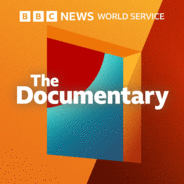
FeatureKultur & Gesellschaft
The Documentary Podcast Folgen
Hear the voices at the heart of global stories. Where curious minds can uncover hidden truths and make sense of the world. The best of documentary storytelling from the BBC World Service. From China’s state-backed overseas spending, to on the road with Canada’s Sikh truckers, to the front line of the climate emergency, we go beyond the headlines. Each week we dive into the minds of the world’s most creative people, take personal journeys into spirituality and connect people from across the globe to share how news stories are shaping their lives.
Folgen von The Documentary Podcast
2 Folgen
